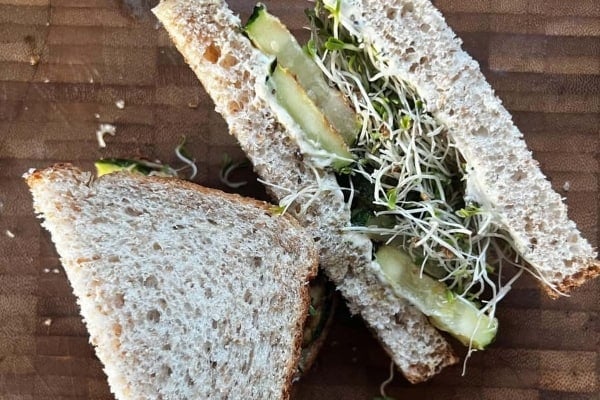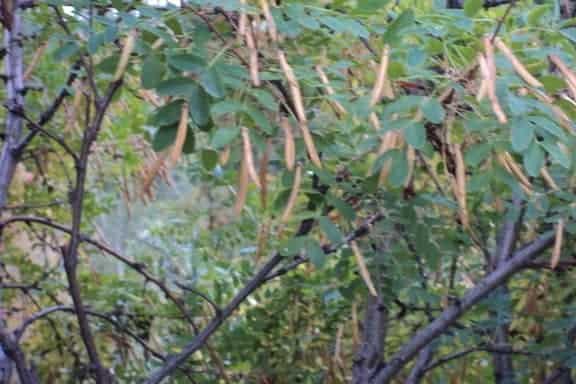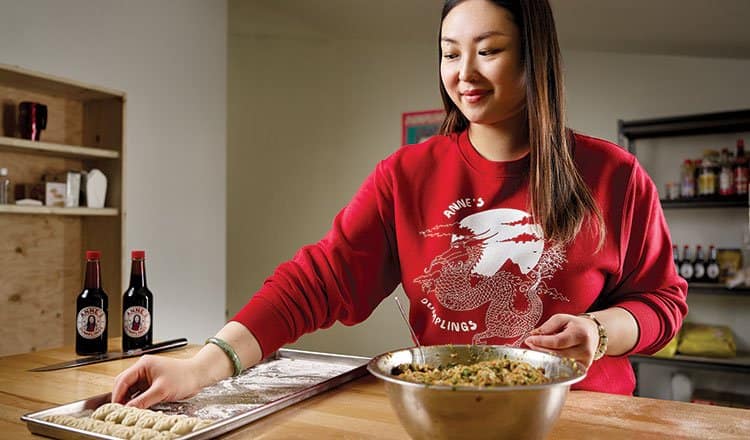Now that spring has officially sprung, local farmers are waiting for the ground to warm up enough to put seeds and seedlings into the earth. Every year, farming is a gamble. It takes a pile of money to get started, and then farmers are at the mercy of factors such as frost and insects.
Eaters of local produce can help make the farming business a little bit easier by paying up front for a summer’s supply of vegetables and herbs.
This concept is called Community Supported Agriculture (CSA), and it gives farmers much needed cash flow.
“With farming, you’ve got to buy everything in the spring – your seed, your soil amendments, your (farmers) market fees, tools…” says Bart Bounds, who runs Elemental Farm with his partner Kate Mechan. “So when people buy a unit, they’re investing in the farm because we can take that money and buy all of our up-front stuff — our seed costs alone were $2,800 this year.”
Elemental Farm sells what they call a unit, which is a share of the season’s produce, for $395. That entitles shareholders to pick up a box of produce every Thursday for 15 weeks at the Fireweed Community Market in Whitehorse.
The first pickup date depends on the weather, but pickups generally start at the end of May, with vegetables like mixed salad greens, and radishes, then as summer ramps up there is a proliferation of produce, including tomatoes, broccoli, and root vegetables. Then the season concludes with potatoes.
Buying a unit from the Elemental Farm also entitles purchasers to join Bounds and Mechan at their farm, located off the Takhini Hot Springs Road, for a final harvest and year-end canning session.
It’s a real know-where-your-food-is-coming-from kind of a shopping experience.
The CSA investment concept also supports food security in the Yukon. It is a way of sharing the risk with farmers: if they have a low yield, consumers will get less each week, but the farmer still earns a living.
“Last year we were hammered by turnip beetles; the year before we had frost twice per week,” Bounds says. “There are no guarantees, and there’s no money back.”
It’s not lucrative.
“Last year I figured I made just under $7 per hour,” Bounds says. “We’re losing money where our mouth is.”
But Bounds and Mechan don’t just do it for the seven-dollars-per-hour. They believe in eating healthy food, using organic practices, and living sustainably. They also take pride in growing food for the community.
“We think organic, healthy, sustainable food is a human right,” Bounds says.
Mechan agrees.
“One of our goals is to make food affordable,” she says. “The up front cost can seem like a lot, at $395, but to spend $26 per week isn’t that unusual.”
Now is the time to buy a share of the year’s harvest. Mechan and Bounds have already sold 20 units, and have 20 more available.
And they are not the only farmers in the Yukon offering such investment opportunities.
Brian Lendrum, with the association Growers of Organic Food Yukon, pointed to Tom and Simone Rudge, of Aurora Mountain Farm; Rolland and Mary Girouard, of Rivendell Farm; and Shiela Alexandrovich, of Wheaton River Gardens as other examples.
Wheaton River Gardens is located an hour south of Whitehorse on Annie Lake Road. Alexandrovich has been growing vegetables there for 34 years, and has been selling shares in her organic produce for 14 years. She also says the CSA business model is beneficial.
“Six years ago there was a heavy frost every month, so there were no potatoes — none,” she says. “But I did so much work that year. Constantly covering and uncovering the plants. So I was still paid for my work, my attention to the plants. So it’s about spreading out the risk of farming.”
Her shareholders haven’t complained.
“I’ve never had negative feedback,” she says. “When I take my produce to the (Fireweed Community Market) it was picked fresh that day – it wasn’t packed green and ripened in a truck. There’s absolutely a difference.
“And on good years and things are super-abundant, (my customers) get more.”
For Alexandrovich, like Bounds and Mechan, producing food is an occupation driven by passion.
“Farming is not about money — on this scale it’s not,” she says. “It’s about lifestyle. It’s about having good food and good work.”
Still, she knows very well the financial pitfalls that prevent more people from growing food.
“What if one day Bart (Bounds) says, ‘To hell with this, I’m going to drive a bus for $20 per hour, instead,'” she says. “If we want more food up here, then we have to support the people who are growing it, and we can’t expect the food to be cheap. How many other people will work for $7 per hour?”
Shiela Alexandrovich sells roughly 12 shares of her harvest. To enquire about buying in, call 668-5964; to buy a unit of Kate Mechan and Bart Bounds summer produce call 335-4323.
To reach Aurora Mountain Farm call 393-4628; to reach Rivendell Farm call 633-6178.




